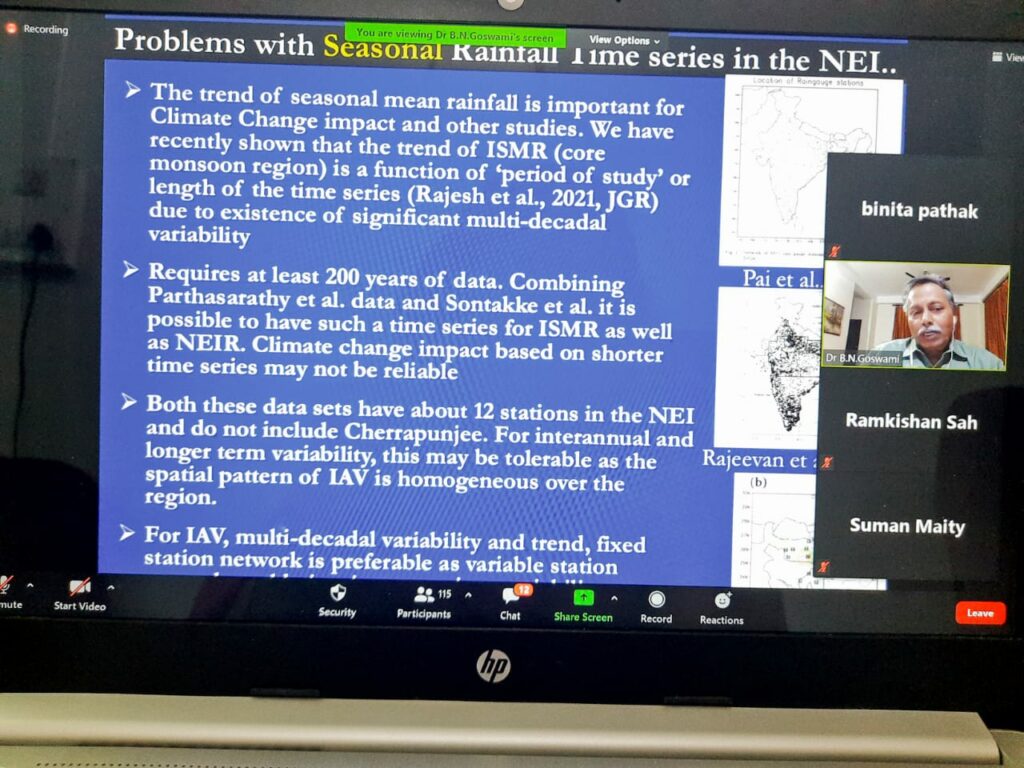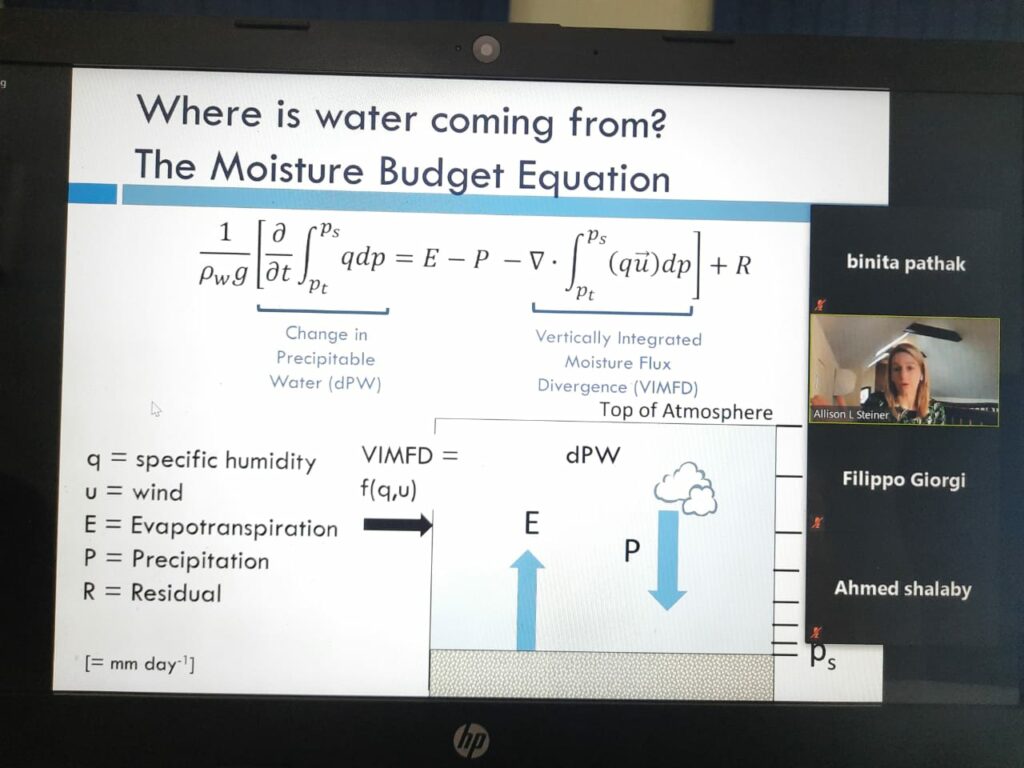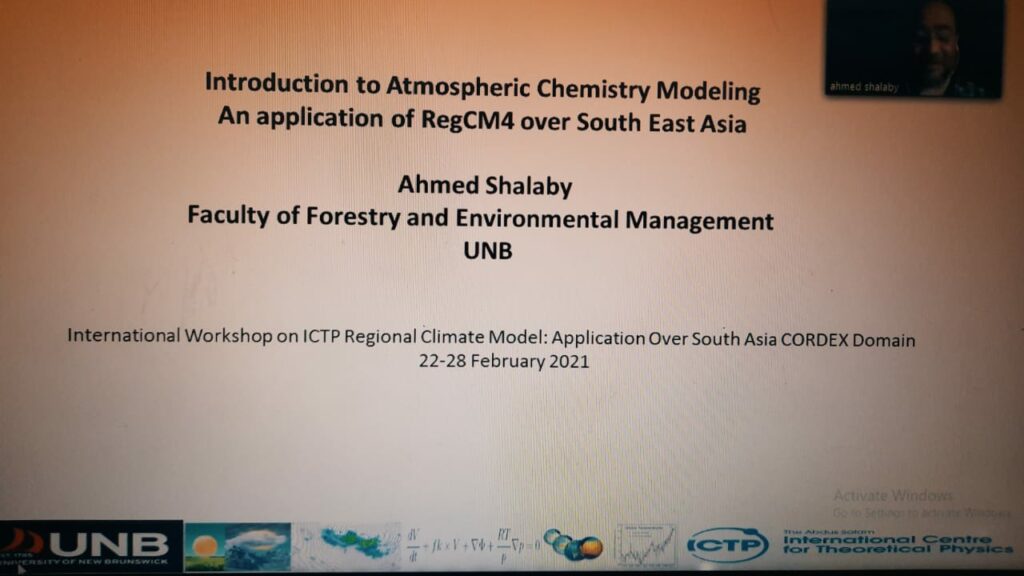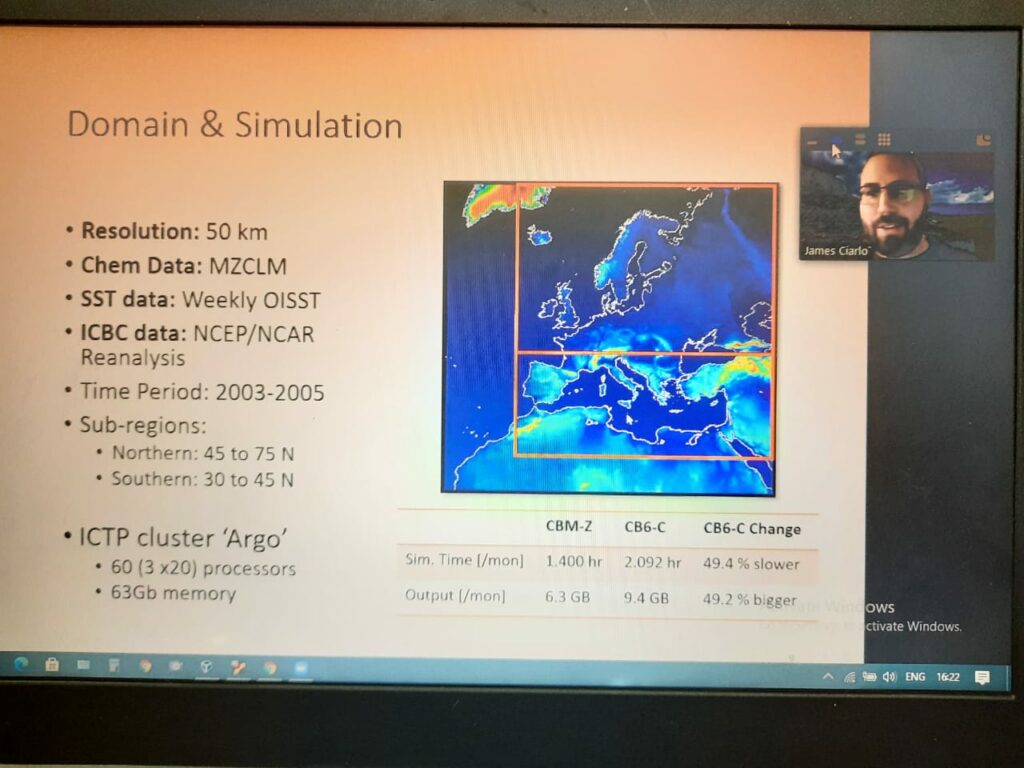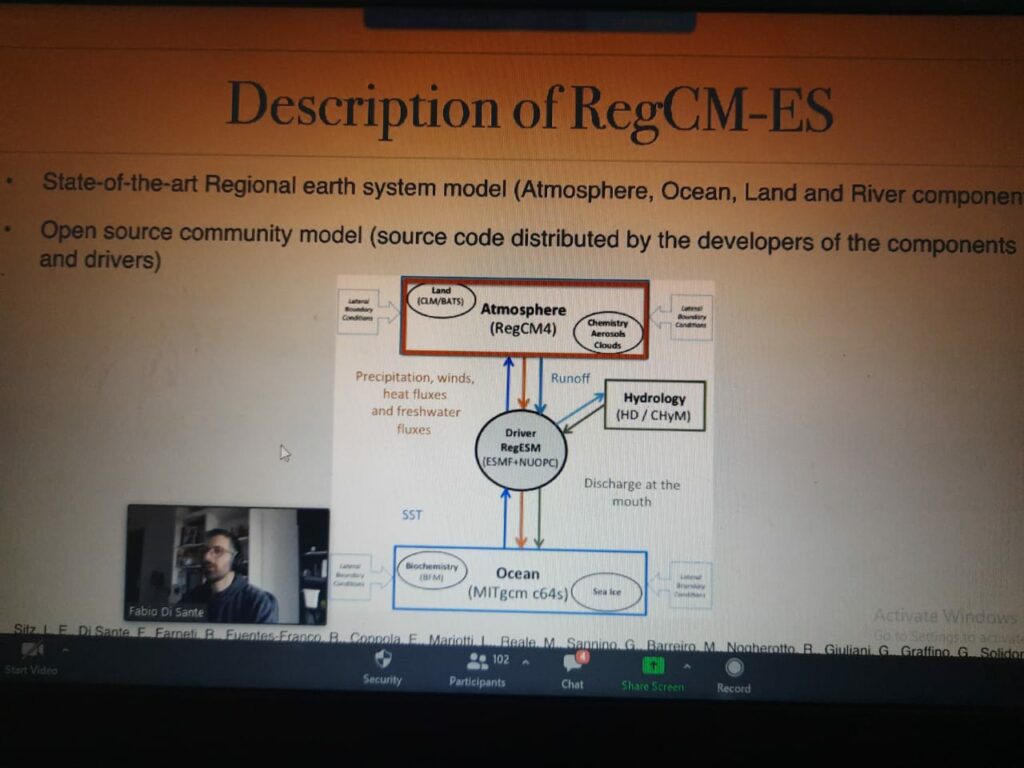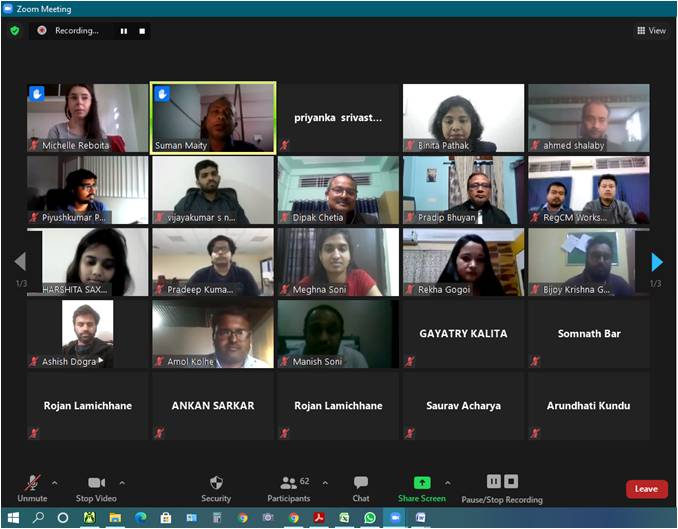The Department of Physics, Dibrugarh University organised an international workshop keeping in mind the challenges faced by researchers and scientists in accessing the Regional Climate Model developed by the ICTP, Italy. Dr Binita Pathak, Asst. Professor, Dept of Physics, being a junior associate of the ICTP, Italy convened the workshop which commenced on 22nd February and ended on 28th February. More than hundred people participated in the inaugural session and attended the keynote address by Indian meteorologist Professor Bhupendra Nath Goswami, FNA, FASc, FNASc, FTWAS, SERB Distinguished Scientist of SERB (DST) in Cotton University, Assam, a former director of the Indian Institute of Tropical Meteorology and professor in the Indian Institute of Science, Bangluru. The inaugural ceremony was followed by the ‘Theme Talk’ by the developer of the climate model-RegCM, Dr. Filippo Giorgi, Group Head, Earth System Physics, The Abdus Salam International Centre for Theoretical Physics, Italy, and an ‘Invited Talk’ by Prof. Allison L Steiner, Department of Climate and Space Sciences and Engineering, University of Michigan, USA.
Climate models are a part of the Earth System models used to represent the complex climate system, i.e., the interaction between the geosphere, biosphere, atmosphere, hydrosphere, cryosphere etc. using mathematical equations based on physics, chemistry and biology. Using these models we can understand the changes of the climate from paleoclimatic age to the future, about 100 years later. Going by its importance in the research fields, it has become a necessary prerequisite for the climate scientists to be well equipped with its operating processes. For last ten years, the developers of the world’s oldest model-RegCM, The Abdus Salam International Centre for Theoretical Physics organise workshop for the World Research Community, where only a handful are privileged to participate. So keeping in view of the benefit of the larger scientific community in India and adjoining countries (together known as South Asia) working in the area of climate change, Dr Pathak organised this International Workshop under her aegis.
Due to COVID-19, the workshop was organised online and was attended by 60-90 participants including faculties, scientists, post-doctoral fellows and PhD fellows from India and neighbouring Nations. Extensive sessions including both theory and hands-on training were delivered by the following speakers-
- Dr Fabio Di Sante, Scientist (The Abdus Salam International Center for Theoretical Physics (ICTP), Italy, National Institute of Oceanography and Applied Geophysics (OGS), Italy)
- Dr. James Ciarlo, Scientist (The Abdus Salam International Center for Theoretical Physics (ICTP), Italy, National Institute of Oceanography and Applied Geophysics (OGS), Italy)
- Dr. Ahmed Shalaby, Scientist (University of New Brunswick (UNB), New Brunswick, Canada)
Dr. Narendra Ojha, a Scientist, from the Space and Atmospheric Sciences Division of Physical Research Laboratory, Ahmedabad, India, presented his modelling activities over the South Asia and discussed about the challenges and opportunities as well.
Dr Vijaya Kumar S Nair, Scientist, Space Physics Laboratory, Vikram Sarabhai Space Centre, Thiruvananthapuram, Kerala, India had a talk on application of the RegCM model over the glacier melting in Himalayas on the last day of the workshop. His talk was followed by the Valedictory session, presided over by the Dean R & D, Dibrugarh University. Prof Pradip Kumar Bhuyan, who initiated the Space and Atmospheric Physics research in Dibrugarh University also addressed the participants during the session. The speakers and convener were overwhelmed by the response of the research community to learn about the Regional Climate Model, which has its importance in understanding the climate and mitigating changes in terms of the ever-increasing temperature and atmospheric composition etc. Many of the participants are requesting for extended sessions of the workshop mainly on hands-on training.
